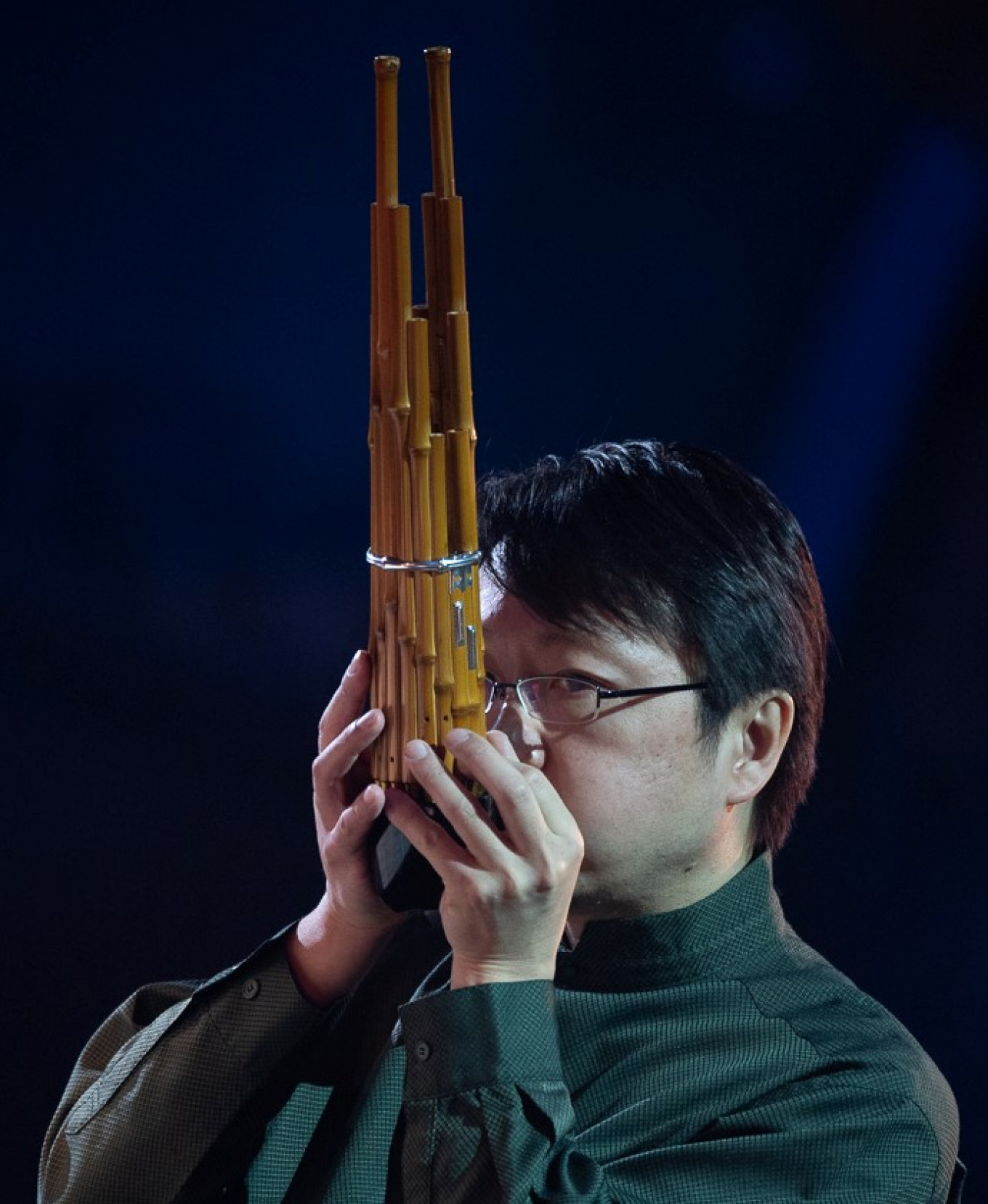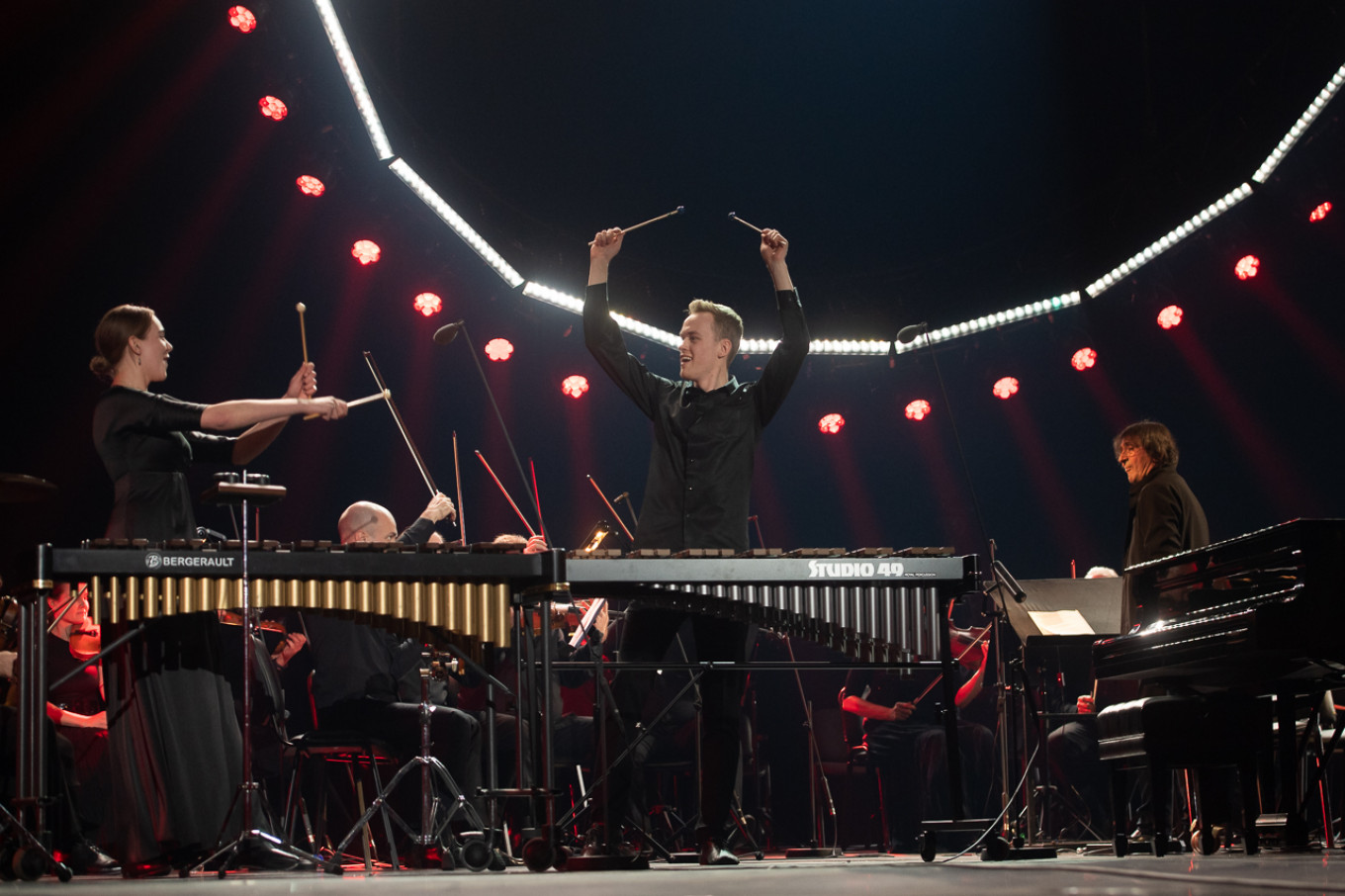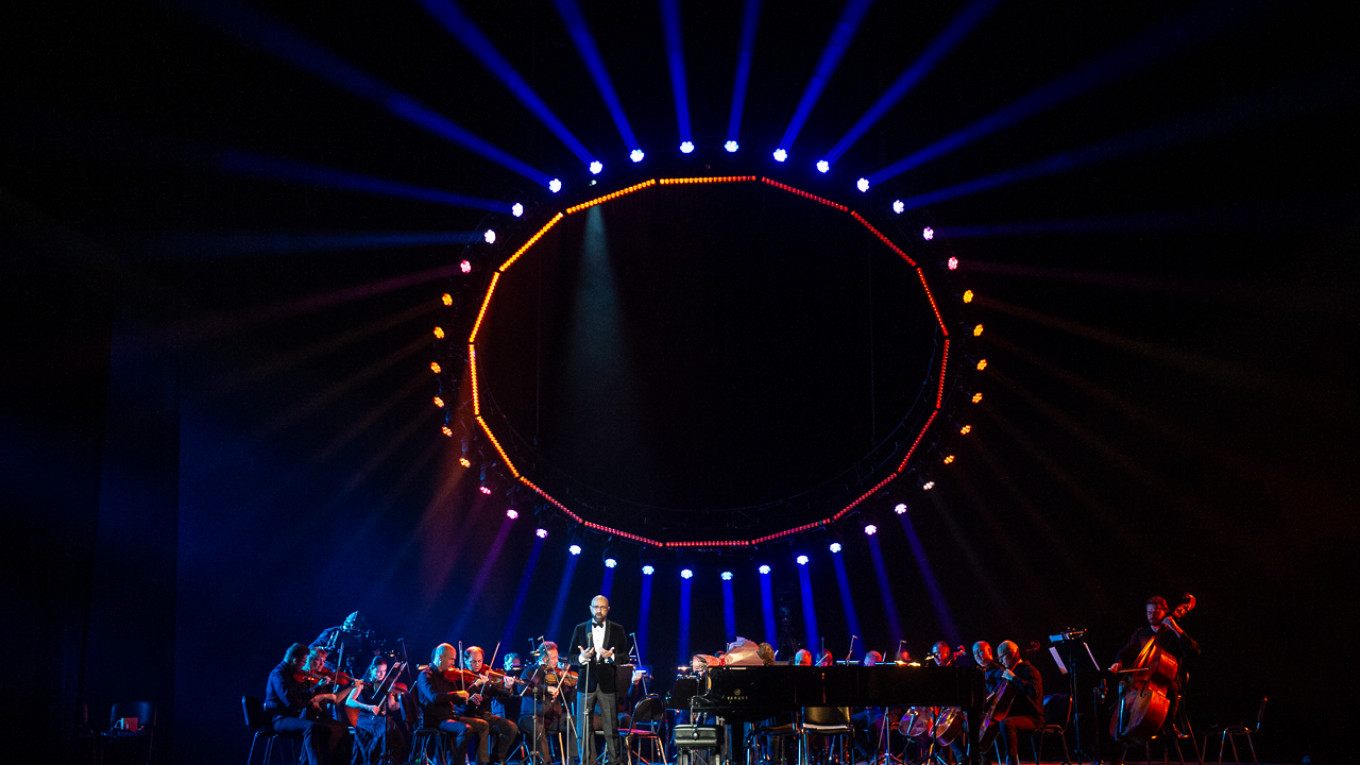The Sochi Winter Arts Festival opened on Thursday evening with a gala concert program that mixed the unexpected and unfamiliar with a line-up of familiar favorites.
It is definitely not a staid event. It begins as the audience enters the theater. The lower foyer of the Winter Theater is hosting an exhibition of video art curated by Antonio Geusa called “Echoes of Eco”: 15 short video works that look at ecology and human intervention. The annual exhibition, which has been part of the festival since 2011, is the longest running video art festival in Russia.
In the concert hall, the musical program opened with a piece by Enri Lolashvili for viola and orchestra, performed by Yuri Bashmet and the Moscow Soloists Chamber Orchestra. It was followed by a world premiere: “My Shadow,” a composition for piano and orchestra by the award-winning Korean composer Donghoon Shin, performed by pianist Ksenia Bashmet.

Donghoon Shin was new to the audience, but they welcomed back Japanese composer Atsuhiko Gondai, whose composition for European strings and the shō (a traditional Japanese reed pipe) was performed by the extraordinary Naoyuki Manabe. Later in the program the audience was introduced to three more new instruments: a viola d’amore, a hardanger fiddle and nyckelharpa, played by the Swedish group Northern Resonance. They performed a piece called Hemfard that set feet tapping throughout the theater.
The first half of the program ended with Dmitry Lukyanov’s “Fantasia on Themes from Bizet’s Opera Carmen,” billed as a duet for percussion and strings performed by Eleonora Kostina and Ilya Kucherov. The audience began to buzz when the stagehands wheeled out two xylophones, which were followed by two willowy performers in concert black. As the Moscow Soloists began Lukyanov’s “Fantasia,” the two musicians danced and glided behind their instruments like Fred and Ginger while playing flawless and spirited “Carmen” on their xylophones and drums. The audience, enchanted, had them come out for a second curtain call.
The evening included a stellar performance by one of the world’s greatest countertenors, Max Emanuel Cenčić, and the powerful and expressive Italian baritone Mattia Olivieri, who performed works by Rossini and Mozart and then a duet with the young Russian soprano Elmira Karakhanova. They were accompanied by the Russian Youth Symphony Orchestra, conducted by Bashmet.
Stage magic was provided by the lighting designer Ivan Vinogradov, who lit the first half of the concert with an enormous ring. It first hung low over the Moscow Soloists and bathed them in blue light, and then was lifted up like a halo that spot-lit the performers, or circled around them, or formed a delicate net of light beams. In the second half of the program, the Youth Orchestra was lit by dozens of thin metal tubes hanging above them that rose and fell in changing patterns, lighting up entirely or in spirals and beacons of blue, white, red, and yellow.
The festival was off to a festive start.

A Message from The Moscow Times:
Dear readers,
We are facing unprecedented challenges. Russia's Prosecutor General's Office has designated The Moscow Times as an "undesirable" organization, criminalizing our work and putting our staff at risk of prosecution. This follows our earlier unjust labeling as a "foreign agent."
These actions are direct attempts to silence independent journalism in Russia. The authorities claim our work "discredits the decisions of the Russian leadership." We see things differently: we strive to provide accurate, unbiased reporting on Russia.
We, the journalists of The Moscow Times, refuse to be silenced. But to continue our work, we need your help.
Your support, no matter how small, makes a world of difference. If you can, please support us monthly starting from just $2. It's quick to set up, and every contribution makes a significant impact.
By supporting The Moscow Times, you're defending open, independent journalism in the face of repression. Thank you for standing with us.
Remind me later.







